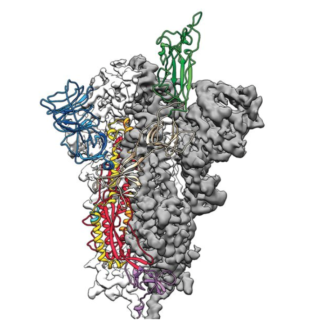FAU researchers race to develop a passive immunisation regiment against SARS-CoV2

Since its emergence in Germany in late January, the novel coronavirus SARS-CoV2 has infected more around 207.000 people and claimed more than 9000 lives nation-wide. Although our knowledge about the clinical handling of COVID-19 patients has deepened considerably, there are still no FDA approved treatments against SARS-CoV2. Beside identifying and repurposing already FDA approved drugs with antiviral efficacy for the use in the treatment of COVID-19 (such as in the cases of dexamethasone or remdesivir), a central focus of global research efforts lies the development of specific preventive and treatment options, such as vaccines or antibody therapies.
FAU researchers under the joined lead of Prof. Dr. Thomas Winkler, Prof. Dr. Hans-Martin Jäck and Prof. Dr. Klaus Überla are currently developing a passive immunisation approach, which uses antibodies derived from recovered COVID-19 patients as the foundation to develop monoclonal antibodies against the spike protein of SARS-CoV2, that can be then produced on a large scale in vitro. Those antibodies could then be administered to population groups with a high infection risk to provide immediate protection against the virus. The protection provided through passive immunization is transient, but expected to last for approximately two to three months. Until an active immunization is sufficiently tested and subsequently approved by health officials, passive immunization could be a key tool to control infection in high risk individuals.
To learn more, we recommend the official press statement by the FAU faculty of science:
https://www.nat.fau.eu/2020/04/23/fau-scientists-are-working-on-a-vaccine-against-covid-19/
